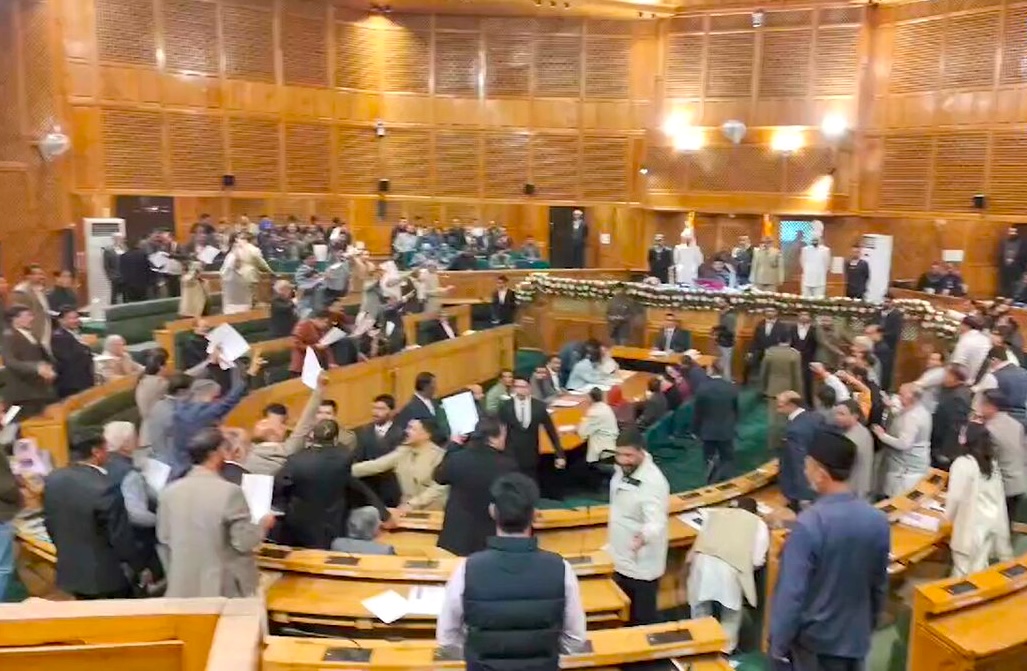In a democracy, Members of the Legislative Assembly (MLAs) play an essential role in representing the voices of their constituencies, debating policies, and making critical decisions for the well-being of the public. However, ethical issues in the assembly have become a growing concern, particularly among MLAs in Jammu and Kashmir (J&K). The lack of professionalism, decorum, and ethical conduct can undermine democratic processes and erode public trust, thus weakening governance.
The Problem of Unethical Conduct in the J&K Assembly
The legislative assembly is meant to be a platform for healthy debates and constructive criticism, where elected representatives discuss policies and scrutinize the executive branch of government. However, in recent times, there have been numerous instances of MLAs in the J&K assembly displaying a lack of decorum and ethical behavior. This issue is not unique to J&K, but it is especially concerning given the state’s unique political and social challenges.
Several unethical behaviors have been observed within the J&K legislative assembly, some of which include:
Disruptive Behavior: Many sessions are frequently interrupted by MLAs who engage in shouting matches, unruly behavior, or even physical altercations. Such disruptions often delay critical discussions, and sometimes sessions are adjourned without any productive outcomes.
Personal Attacks and Abusive Language: MLAs are often observed engaging in personal attacks or using abusive language against one another. Instead of focusing on policy matters, they waste time with name-calling and baseless accusations, shifting focus from the real issues faced by the state.
Neglect of Constituency Issues: Many MLAs are preoccupied with personal political gains, using the assembly as a platform for political showmanship rather than addressing the urgent needs of their constituencies. For instance, issues such as development, healthcare, education, and employment in rural areas often take a back seat as MLAs indulge in self-serving agendas.
Absence of Transparency: Lack of transparency in financial dealings, especially in funds allocated for constituency development, has further tainted the image of J&K MLAs. Allegations of corruption and misuse of funds have become rampant, creating a trust deficit among the public.
Failure to Uphold Ethical Standards: With constant allegations of corruption, nepotism, and lack of accountability, many MLAs fall short of the ethical standards expected of them. These behaviors reflect poorly on the assembly’s role as a democratic institution.
Consequences of Unethical Behavior
The consequences of MLAs’ unethical behavior are far-reaching and detrimental to the democratic process and governance. Here are some of the significant impacts:
Erosion of Public Trust: When citizens witness their elected representatives engaging in unethical behavior, it leads to a severe erosion of trust in the political system. Many citizens become disillusioned and cynical about the role of governance in addressing their problems.
Weakening of Democratic Institutions: The assembly, as a democratic institution, loses its credibility and effectiveness when MLAs prioritize personal interests over public welfare. This trend weakens the foundation of democracy and paves the way for authoritarianism, as people may lose faith in democratic governance.
Ineffective Policy-Making: Unethical behavior disrupts legislative sessions, impeding policy debates and the passage of crucial bills. When issues such as healthcare, education, and infrastructure remain unaddressed, citizens ultimately suffer due to lack of development and public services.
Social Disintegration: Divisive behavior and polarizing statements by MLAs contribute to social disintegration. In a state like J&K, where social harmony is critical, such conduct can exacerbate divisions and hinder progress.
To address the crisis of ethical conduct, the J&K assembly and political parties must implement reforms to improve accountability and ethical standards among MLAs. Some possible solutions include:
Ethics Code: Establishing a strict code of ethics for MLAs can serve as a guiding framework, specifying acceptable behaviors and outlining penalties for violations.
Transparency and Accountability Measures: Ensuring greater transparency in the functioning of MLAs and holding them accountable for their actions, especially in financial dealings and constituency-related work, would be crucial for restoring public confidence.
Workshops and Training Programs: Organizing workshops and training programs to help MLAs understand the importance of ethical conduct, parliamentary decorum, and the responsibilities that come with being a public representative.
Stricter Penalties for Misconduct: Enforcing stringent penalties for unruly behavior in the assembly, such as suspensions or fines, can deter MLAs from engaging in disruptive activities.
Public Engagement: Encouraging MLAs to regularly engage with their constituents can help them stay connected with the people’s issues, thus making them more accountable. When MLAs are seen working sincerely for the betterment of their constituencies, public respect and trust will naturally follow.
The lack of ethical conduct among some MLAs in the J&K legislative assembly is a grave concern that needs to be addressed urgently. A strong democratic system relies on the integrity, discipline, and professionalism of its elected representatives. By fostering an environment of accountability and transparency, the J&K assembly can regain the public’s trust and strengthen its role in driving positive change in the state. Through meaningful reform, MLAs can become true advocates for the welfare of the people, setting an example for others in the legislative process.
Altaf Hussain Peerzada
Sdestiny.peerzada518@gmail.com







